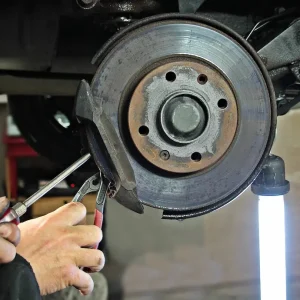Last week I was asked the following question: where an employee of a company is appointed as an assessor of drivers but not a trainer, are there any regulations or legislation that states they are unable to fulfil that role purely as an assessor?
It’s an interesting question that does not have a simple answer, or necessarily a definitive one, because the law is open to interpretation.
The first point to bear in mind is that the ADI regulations were written as consumer protection legislation, not road safety legislation, and were never intended to deal with fleet training/assessing because parliament never considered anything apart from the learner driver taking lessons.
They have therefore been extended to cover fleet training and post test training by the DSA’s interpretation of the letter of the regulations rather than by case law.
It is widely accepted that assessing is not training, but the dividing line between the two can easily become blurred. The assessor takes a candidate round a route and watches what the driver does (OK), identifies faults and training needs (OK) provides feedback to the driver on what the faults are (probably OK) and advice on how to improve (not OK – that’s probably instruction – not that there is any case law). Assessors should therefore avoid giving instruction.
This assumes that the driver holds a full category B licence. The situation is different if the driver is a provisional licence holder because in that case the assessor is automatically supervising a learner, which by implication means they must be instructing.
A non ADI driving assessor should not, in my view, assess the ability of a learner in the course of work because that would involve payment.
The assessor could not claim they were only assessing because there are specific offences for causing, allowing, encouraging or persuading a person to commit an offence, and if the driver makes a mistake, the assessor is committing an offence if he does not intervene, or does intervene!
Driving examiners, be they DSA or delegated, are covered by different rules. A driving examiner is not legally responsible for any action or inaction on the part of the candidate.
If a candidate has a crash the examiner’s only legal responsibility is to provide aid to anyone injured. This is backed by case law – people have tried to sue examiners for causing or allowing an accident with scant success.
The situation with B+E is different because B+E is not covered by the ADI regulations, so an assessor, or anyone at all, can give instruction providing they have held a full B+E licence for at least three years.
C1, C1+E, and D1, D1+E are different again because the DSA said you had to have a full licence by test to train someone of a C1 or D1, and someone disagreed and proved them wrong – so they changed the Regs to make their advice correct.
They did not do a particularly good job though, so the net effect is that to supervise a provisional licence holder on C1, C1+E, D1, D1+E, you must have passed a test on that category and have held the full licence for at least three years.
So, for example: a fire service driver or instructor with a pre-97 licence, who has not passed an LGV C test, can train a driver on a C1 or D1 if the driver also holds a pre 97 licence, but not if they passed the test after 97 and need to take the test – they are supervising a provisional licence holder.
A fire service instructor with an HGV/LGV C licence however can supervise a provisional licence holder because he has passed a cat C test, and C1 is a sub group of C. Likewise, a bus company instructor with D by test can supervise a D1 learner.
But, care must be taken by all emergency aervice and bus company instructors, because they use a lot of vehicles with automatic gearboxes, so a fire service instructor with HGV/LGV cat C (restriction code 78 – automatic transmission only) cannot supervise a provisional licence holder on a C1 with a manual gearbox unless he has passed the C1 manual test, and at least three years ago.
The same is obviously true for a bus company instructor with full D (78) who wants to give tuition on a manual D1.
This is a very unsatisfactory situation and is going to have a serious impact on the emergency services in the next 20 years.
Experienced personnel who passed their car tests before 1997 and who got C1 and D1, so who did not need to take a formal “L” driving test before they did their advanced training on C1, D1, etc., and who would normally gravitate into the training side as they progress through their careers, are going to be ineligible for the training team because they did not pass the C1 or D1 test.
And if they do it now, they still cannot instruct for three years. This will inevitably lead to less experienced personnel who passed after 1997 being given instructional roles over more experienced officers who passed the car test before 1997.
I hope that clarifies it (I say with a rueful smile!)





